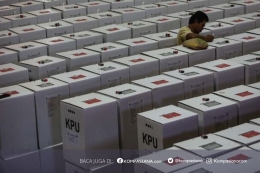This research explored the intersection of gender, identity, and socio-political struggles in the works of Fatima Mernissi (Teras Terlarang), Ibrahim Fawal (My Salwa My Palestine), and Carmen bin Laden (Inside the Kingdom), revealing how these authors address themes of resistance, colonialism, and empowerment within the contexts of the Middle East and North Africa. The analysis demonstrated that these literary works offer nuanced portrayals of women's agency in patriarchal societies, while also shedding light on the impact of colonial and postcolonial histories on gender dynamics and cultural identities. Through their characters' struggles for personal and collective empowerment, these texts highlight the complex ways in which women challenge and resist oppressive systems, both political and cultural.
The findings underscore the importance of literature as a tool for exploring and critiquing societal issues, particularly the intersections of gender, power, and colonialism. These works not only provide insight into the historical and cultural contexts of the Islamic world but also contribute to broader global discussions on gender equality, postcolonial resistance, and identity formation. By focusing on marginalized voices, these authors offer a vision of empowerment that transcends individual struggles and invites a broader conversation on social justice and human rights.
The logical consequence of this research in the context of Islamic education lies in its potential to challenge traditional narratives and encourage more inclusive, critical perspectives in the study of Islamic culture and literature. It calls for the integration of feminist and postcolonial approaches into Islamic educational curricula, particularly in exploring the roles of women within both historical and contemporary contexts. By fostering critical thinking and offering a space for questioning cultural and religious norms, this research contributes to the development of a more nuanced and progressive approach to Islamic education. In practice, it encourages educators to engage with texts that promote gender equality, social justice, and the empowerment of marginalized groups, fostering a more inclusive and equitable understanding of Islamic thought and culture.
ACKNOWLEDGMENT
I would like to express my deepest gratitude to those who have supported me throughout the process of writing this journal. First and foremost, I would like to extend my heartfelt thanks to my lecturer, R. Myrna Nur Sakinah, M.Hum., whose guidance, encouragement, and invaluable insights have been instrumental in shaping this research. Her expertise in the field of literature, especially in the context of the Islamic world, has provided me with a solid foundation and inspired me to approach this topic with a critical and thoughtful perspective. Her constructive feedback and thoughtful suggestions have enriched my understanding and approach to the material, and I am truly grateful for her patience and dedication in guiding me through the writing process.
I also wish to extend my deepest gratitude to my family for their unwavering support and love. To my parents, thank you for always believing in me and providing the emotional and practical support I needed to pursue my academic goals. Your constant encouragement has been a source of strength throughout this journey. To my siblings, thank you for your understanding and for always being there for me, offering both words of encouragement and a sense of humor when needed.
A special thank you goes to my friends, who have been a constant source of motivation and inspiration. Your friendship has made the challenging moments more bearable, and your perspectives and discussions have played a significant role in shaping my ideas for this journal. Thank you for your emotional support, encouragement, and for always reminding me of the bigger picture when the journey seemed overwhelming.
Finally, I would like to acknowledge the invaluable contributions of the authors and researchers whose works I have referenced in this journal. Their groundbreaking research has been a crucial resource for understanding the complexities of the issues explored in this study.
This journal would not have been possible without the collective support of these incredible individuals, and for that, I am deeply thankful.
BIBLIOGRAPHY
Mernissi, F. (1991). Teras Terlarang. Terjemahan oleh Siti Maemunah. Jakarta: Gramedia Pustaka Utama.







